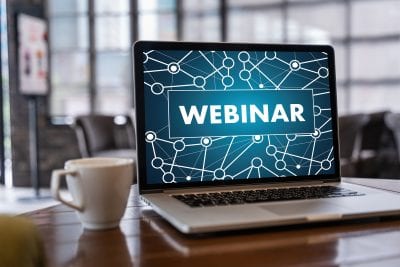STEM
Using OER to Promote Student Engagement in the Mathematics Classroom
Description: How can we raise student engagement and increase probability of student success with OER? Using the research from Peter Liljedahl’s book, Building Thinking Classrooms, we will discuss and explore various ways to evaluate student learning during class time.
Facilitators: Lori Martin (Rogers State University)
Building Skill Sets for STEM Courses with Open Educational Resources
Description: Oklahoma has continuously lower percentage bachelor in STEM degrees in last more than 20 years. In this presentation, I will be talking about how some of the basic Open Educational Resources (OER) can help build developing skills among students to make future Oklahoma work force STEM ready.
Facilitators: Susmita Hazra (Cameron University)
Humanizing Online STEM Courses with Active Learning Components
Description: Two most important learning outcomes in STEM courses are critical thinking and problem solving. I talk about course design technique and applied methodology for active learning in online STEM courses. I share ideas to humanize an online STEM course to provide students with engaging classroom experiences.
Facilitators: Susmita Hazra (Cameron University)
Using a Free Geometry App and Activity-Based Text in a Course for Elementary Ed Majors
Description: 2021 Oklahoma OER Summit: Chris Oehrlein (Oklahoma City Community College) describes the sophomore-level Geometry and Measurement course designed for pre-service teachers. The presenter will provide examples of activities and assignments using the OER text, geometry app, and college’s LMS. The presenter will also describe and analyze the standards-based grading scheme used in the course.
2021 OKLIS: Non-Intrusively Engaging Students in a Synchronous Online Class
Description: Are you hesitant to call on your college students in class? Are you looking for a way to include more students in your synchronous online discussions without embarrassing anyone or causing anxiety? This presentation will help you develop a method for increasing student engagement and participation in your class in a non-intrusive manner. Most college instructors are looking for ways to bring learner-centered pedagogy and high-impact practices into the classroom, especially strategies that prioritize diversity and inclusion. This session will help you to build relationships and trust with your students in a short amount of time, and more students will be actively engaging in classroom discussions. The percentage of students participating in your class will dramatically increase! If you’re looking for a way to move from a traditional lecture format to more of a discussion format, this session is for you!
Facilitators: Tracy Jackson (Tulsa Community College)
2021 OKLIS: Adaptive Teacher Development Strategies for Teaching STEM-related Information Systems with Analytics
Description: Women are often underrepresented in the Science, Technology, Engineering, and Math (STEM) professions. Without access to equitable opportunities to explore careers, acquire interdisciplinary contents, and develop the 21st century skills that can further impede women’s abilities to participate in the highly competitive global workforce; and succeed in fast-growing, STEM-related emerging careers (e.g. analytics, data science). This multi-tier STEM Career Builder grant (2018-2021), funded by the National Science Foundation (NSF), aims to discover what partnership models, strategies, and innovations can effectively support female high school teachers and students through the research, development (R&D) and implementation of five multi-tier interventions: (1) teacher professional development (PD), (2) a summer academy, (3) job shadowing, (4) mentoring, and (5) internships, and research fellowships.
Facilitators: Dr. Joselina Cheng, Alexia Benson (University of Central Oklahoma)
2021 OKLIS: Bringing Virtual Reality to Higher Education
Description: SEOSU partnered with OneNet to produce approximately 50 VR enabled modules for 12+ faculty in multiple departments at Southeastern. The first few are in the final stages of development. We will share our experience thus far and discuss how others might begin similar projects at their own institutions.
Facilitators: Christala Smith (Southeastern Oklahoma State University)
OK Nursing Remote Labs Workshop
Description: For nursing faculty and online learning professionals: a workshop to uncover issues related to teaching traditional skills and nursing simulations remotely. The workshop will brainstorm ideas and help participants start a plan to prepare for any future transition to remote instruction.
Facilitators: Brad Griffith (Oklahoma State Regents for Higher Education)
Maintaining Quality During the Transition to Online
Description: Has anyone ever said to you that online education does not have as much quality or rigor as face-to-face instruction? Have you struggled to provide and intelligent reply? Are you concerned about the quality of your online course during the recent, and rapid, conversion to remote instruction? If so, this topic is for you! This session will provide a blueprint for establishing quality measures, gathering data, seeking student and faculty input, and building a process for continuous improvement to help ensure quality in your online environment. Examples will be given as well as lessons learned, from a recent start-up of an online program track.
Facilitators: Nancy Gwin (University of Central Oklahoma)
Online Lab Conundrum – Virtual Workshop
Description: Have you been grappling with whether labs can be delivered effectively in the online environment? This session will review what the Eberly College of Science at Penn State University is doing for online labs, proving that it’s not about the labs, it’s about the outcomes. This highly interactive and collaborative session will utilize problem-based learning to help participants uncover strategies to use in their own courses.
Facilitators: Melissa Hicks (Penn State University)
A Practical Guide to Teaching Online Courses
Description: This presentation will cover proven strategies to set-up faculty, their students, and their departments for success in online courses. The use of data-driven decisions, mobile course design, mobile content development, implementing OER, and the engagement-edutainment of students will be demonstrated from online science courses across Oklahoma. This presentation will empower you to achieve higher enrollment, higher student completion rates, and higher personal satisfaction in your online courses – while having a blast!
Facilitators: Kenny Tapp (University of Central Oklahoma)
OpenStax in Science
Description: This presentation will focus on experiences gained through implementation of the OpenStax OER in a community college science course. Tools that have assisted with this implantation will also be presented and discussed.
Facilitators: Amanda Carlisle (Beaufort County Community College)

